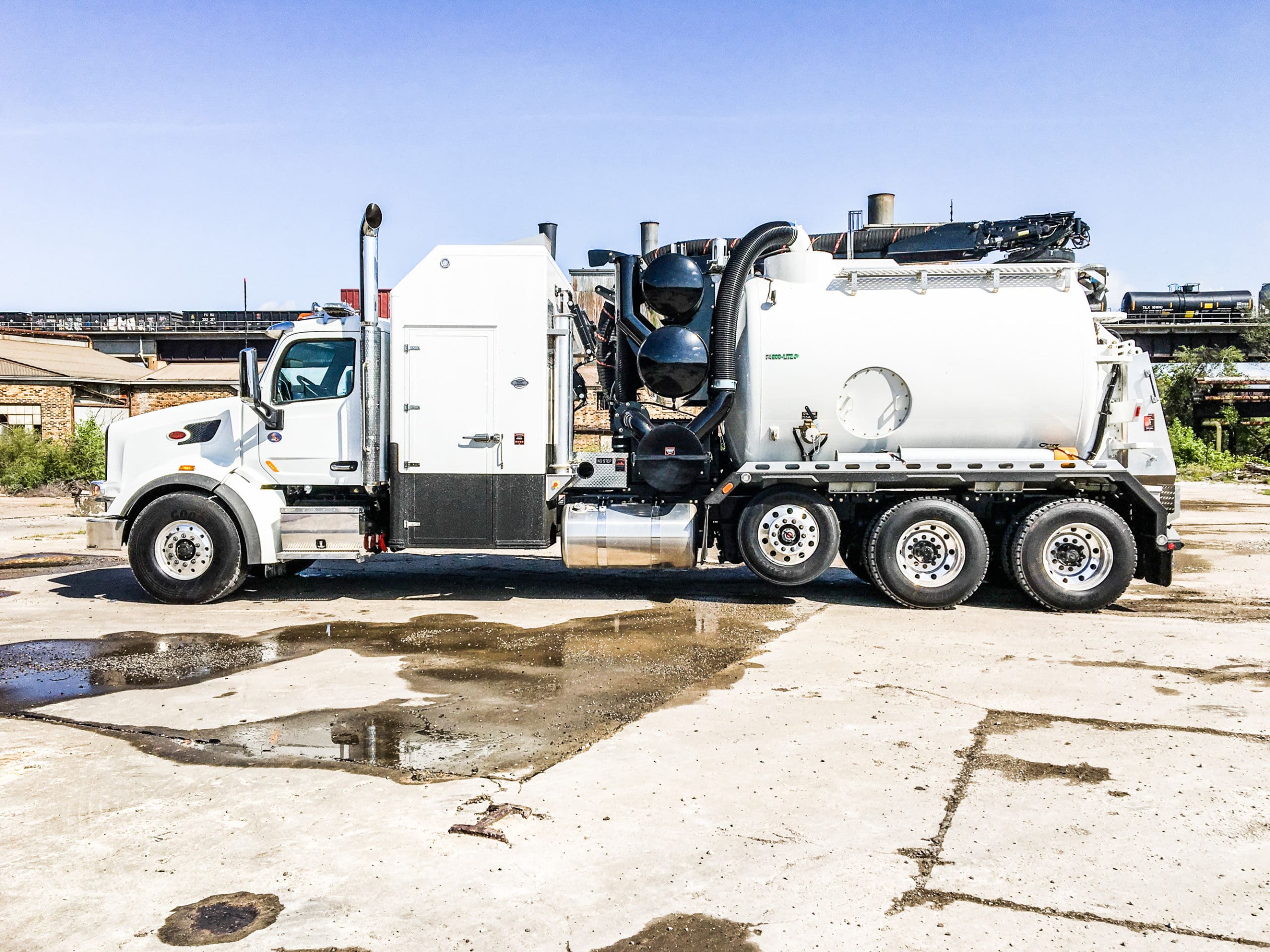
The positive displacement blower – a machine used to move gas or air – is probably the most taken-for-granted component in your hydrovac truck. They usually work quite efficiently. So why fix something that isn’t broken?
It is this very attitude that often ends up costing vacuum truck owners a lot of money. Without regular maintenance, positive displacement blowers are as susceptible to wear and tear as any other piece of machinery. And when it fails, work basically comes to a standstill.
Of course, you should always go through the operating manual so you are up to speed on what to do should your blower start acting up. But below we have provided you with some additional general guidelines on how to keep your positive displacement blower in excellent working condition and how to recognize the signs when something isn’t quite right.
#1: Overhung Load
Excessive overhung load is something you need to watch out for, as it is a common, and often overlooked, cause of drive shaft rotating equipment failure. Rotors are a major component of a positive displacement blower. Excessive overhung load mainly takes a toll on the drive shaft bearing, which tolerates the brunt of side loading. This can be passed on via the rotors to the gears. The end result is massive wear and tear and possible gear and bearing failure. Basically, your positive displacement blower could be damaged beyond repair. Something else to be alert for is excessive loading on the drive shaft. This can cause the rotors to touch each other, and the blower could shake and come to a grinding halt.
# 2: Lubrication
All machinery requires lubrication to stay in perfect working order. In the case of positive displacement blowers, bearings and timing gears need to be kept lubricated at all times. There is also the possibility of too much or too little lubrication, so it’s always good to consult the manual to find out the levels required. The manual will also provide you guidance on the amount of oil needed and the viscosity and quality of lubricant best suited to the blower. Using the wrong kind of oil could cause serious damage, like putting diesel in a gasoline-powered car would. As a rule of thumb, synthetic lubricants are recommended for the gears and gear end bearings of your blower.
Remember, the blowers you buy come without oil. Forgetting this can lead to catastrophic consequences for this key piece of equipment. As soon as you receive the blower, make sure you add oil before you put it to work. You can imagine what kind of damage failing to add oil could do to your brand new blower. In most cases, that damage is irreversible.
# 3: Pressure
A faulty relief valve in your blower can lead to over-pressure issues, which can seriously damage the rotors. Over-pressure can lead to rotors coming in contact with one another, the cylinder, and maybe even the head plates of the blower. You need to make sure the relief valve is of the correct size and fitted properly, so you don’t have to pay the price later. You could also put in a pressure relief valve to make doubly sure there are no over-pressure issues.
# 4: Vibrations
Your blower should emit smooth vibrations. Too much, and you know something is wrong. Perhaps a part has come loose inside. A part bouncing around in your blower could damage all its components. Think of a stone rattling in a can. An ugly sound or vibration means something is amiss. Stop the machine and check immediately.
# 5: Employee Training
While service centers are always available, they may take time to repair and return your damaged blower. Even routine maintenance takes time. It’s always good to have the employees who will be handling this crucial piece of equipment know how each and every part of the blower operates. This can save time and money, as an employee who is aware of how the blower functions is more likely to take proper care of it.
A blower is not an extremely complicated piece of equipment. You just need to keep your eyes and ears open for anything out of the ordinary, and your blower will deliver a consistently top-notch performance. A daily check of your blower before putting it to work will ensure you are ready to tackle the workday ahead.
* Source: Terry’s Tips, Hydrovac Nation

